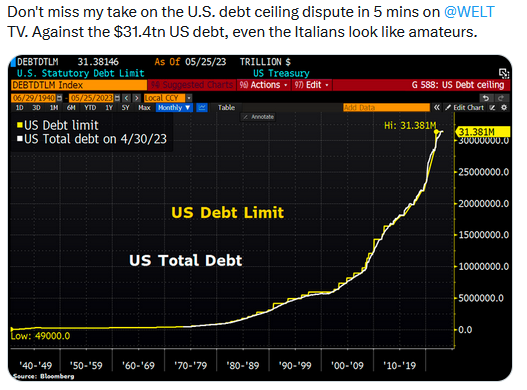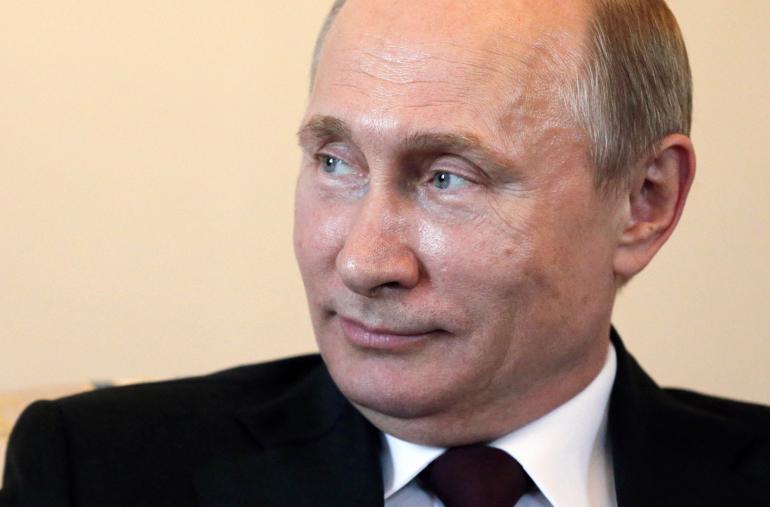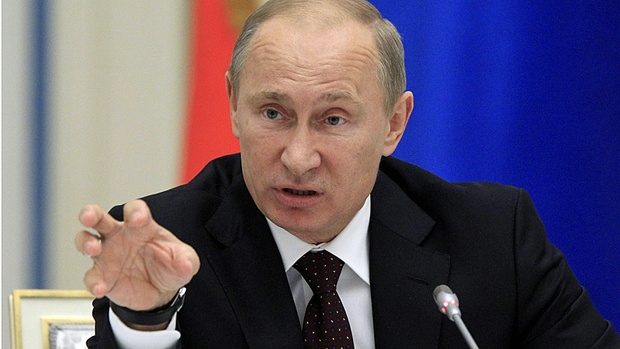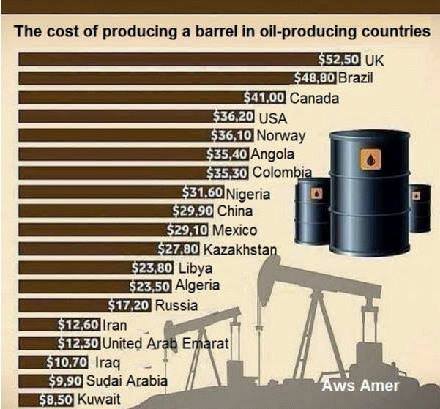Giuseppe Sandro Mela.
2016-04-18.
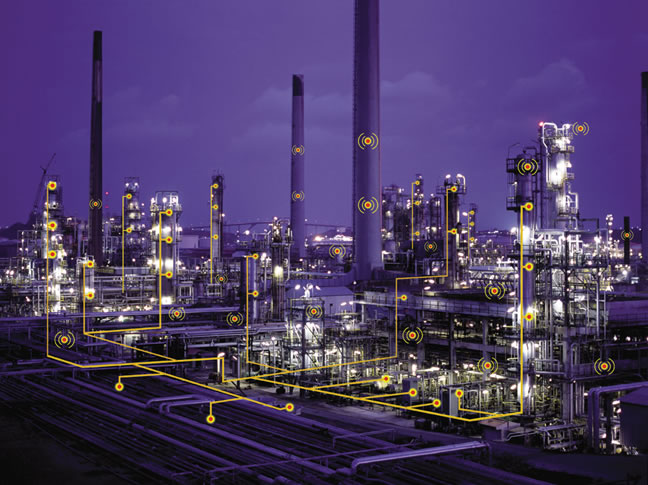
Abbiamo già riferito sul Summit di Doha.
«Saudi Arabia has refused to cut production despite the price fall»
*
L’attenzione del largo pubblico occidentale si è focalizzata sull’esito negativo del Summit: negativo nel senso che tutti avrebbero auspicato un congelamento delle quantità di greggio estratte.
Tutti però dal punto di vista occidentale: ma non esiste solo quello.
Volenti o nolenti esistono anche altri punti di vista: l’Occidente rende conto di circa un buon terzo del pil mondiale, non è più il sistema economico egemone.
*
È significativo come Al Arabiya pubblichi un articolo letteralmente riportato dall’agenzia Afp. Una scelta che è tutto un programma.
Aljazeera pubblica invece un cautissimo articolo, che però mette in luce le vere novità del Summit.
«We support cooperation between OPEC and non-OPEC member countries and efforts to bring stability to the oil market, and we urge all producers to continue their negotiations»
*
«We believe prices will rise regardless what OPEC does or does not do, as US shale oil production, not Saudi Arabia, will be the new swing producer. … We believe oil prices will rise to a sustainable level closer to $60, the new normal, not $100 and not $40 either».
*
La Saudi Gazette pubblica un articolo molto interessante da leggersi tra le righe, anche se talune affermazioni sono state fatte ore rotundo.
«Russia’s RIA Novosti news agency also quoted Azerbaijani Energy Minister Natiq Aliyev as saying the draft included the output freeze at January levels until October.
The meeting in Doha is a follow-up to talks in February between OPEC members Saudi Arabia, Qatar and Venezuela plus Russia in which they first mooted the output freeze.
Saudi Arabia has insisted that all major producers must be on board for the freeze to work.
But Tehran, which has boosted production following the lifting of sanctions under its nuclear deal with world powers, has rejected any talk of a freeze.»
*
«The meeting in Doha is a follow-up to talks in February between OPEC members Saudi Arabia, Qatar and Venezuela plus Russia in which they first mooted the output freeze»
*
L’Arabia Saudita è arrivata al Summit con il dente avvelenato contro l’Occidente:
Arabia Saudita. Potrebbe essere costretta a vendere 750 bn$ in Treasury.
E questo potrebbe anche essere il meno.
La sua reputazione ha subito negli ultimi tempi seri smacchi, anche perché avevano riposto molta, forse troppa, fiducia in un alleato più versato nei temi erotici che geopolitici.
Al Arabiya da ampio spazio al fatto che il Summit sia stato allargato a molti produttori non-Opec, specialmente la Russia ed alla mancata partecipazione dell’Iran, che sarebbe dipinto come l’elemento causale del “mancato accordo”.
Non solo.
La stessa struttura dell’articolo mette in primo piano la figura di Moḥammad bin Salmān, proposto qui come figura chiave delle trattative.
Concludendo.
Per quanto importante possa essere la conclusione del Summit, questi due ultimi fattori sembrerebbero essere decisamente molto più importanti almeno dal punto di vista arabo.
Punto di vista che noi Occidentali dovremmo prendere l’abitudine di considerare con molta maggiore attenzione. Aver infine preconizzato un prezzo al barile attorno ai 60 Usd non sembrerebbe essere cosa da poco.
→ Saudi Gazette. 2016-04-18. Oil producers mull output freeze in Doha
Doha — Major oil producers gathered in Qatar on Sunday for crucial talks on capping production to boost prices, despite Iran’s refusal to take part.
Top energy officials from some 15 countries including Saudi Arabia and Russia were at the Doha talks, amid reports a draft agreement was in the works to freeze output at January levels until at least October.
Major producers both inside and outside the Organization of the Petroleum Exporting Countries (OPEC) are anxious to stem a market nosedive that has cost exporters billions in lost revenue.
From above $100 in mid-2014, oil prices dropped to 13-year lows of around $27 in February due to a supply glut, though they have since rebounded to about $40.
Officials held “consultations” in the morning and delayed the official start of the meeting from 0600 GMT to the afternoon, a member of the Ecuadorian delegation told reporters, declining to provide details. Other officials confirmed the delay.
Ecuadoran Hydrocarbons Minister Carlos Pareja told reporters that his country would support a plan to freeze output until at least October.
He said proposals under discussion also call for “setting up a committee to monitor the freeze,” but provided no further details.
Pareja warned that if no action were taken “there will be huge damage to the oil industry.”
Russia’s RIA Novosti news agency also quoted Azerbaijani Energy Minister Natiq Aliyev as saying the draft included the output freeze at January levels until October.
The meeting in Doha is a follow-up to talks in February between OPEC members Saudi Arabia, Qatar and Venezuela plus Russia in which they first mooted the output freeze.
Saudi Arabia has insisted that all major producers must be on board for the freeze to work.
But Tehran, which has boosted production following the lifting of sanctions under its nuclear deal with world powers, has rejected any talk of a freeze.
Iran had initially said its OPEC representative would participate in the talks but on Sunday Oil Minister Bijan Zanganeh announced Tehran would send no delegation at all.
Deputy Crown Prince Muhammad Bin Salman, second deputy premier and minister of defense, reiterated in an interview with Bloomberg published on Saturday that the Kingdom would not accept a freeze without Tehran’s cooperation.
OPEC said on Wednesday that Iranian oil production in March was 3.3 million bpd, up from 2.9 million in January, but still short of its pre-embargo level of around 4.0 million.
OPEC said its members pumped 32.25 million bpd in March — with Saudi Arabia accounting for nearly a third — up from an average of 31.85 million bpd in 2015.
Saudi Arabia has refused to cut production despite the price fall.
Host country Qatar said “an atmosphere of optimism” spread on the eve of the meeting.
Kuwait’s acting oil minister Anas Al-Saleh told reporters on arrival in Doha that “he was optimistic” about the success of the conference.
Still, oil prices had tumbled on Friday as traders bet that the meeting in Doha will yield no effective measures to curb the global oversupply.
→ Al Arabiya. 2016-04-18. Oil prices plunge after Doha output talks fail.
Oil prices plunged on Monday after the world’s top producers failed to reach an agreement on capping output and easing a global supply glut at a meeting in Doha.
Hopes the world’s largest producer cartel, OPEC, and other major producers like Russia would agree to freeze output has helped scrape oil prices off the 13-year lows they touched in February.
But crude tanked after top producer Saudi Arabia walked away from the agreement, which many hoped would ease a huge surplus in world supplies, after rival Iran boycotted the meeting.
The collapse of Sunday’s talks sent oil tumbling in early Asia trade, with prices sliding as much as seven percent in opening deals.
At around 0100 GMT, US benchmark West Texas Intermediate for May delivery was down $2.11, or 5.23 percent, from Friday’s close at $38.25 a barrel.
Global benchmark Brent crude for June lost 4.71 percent, or $2.03, to $41.07.
[Questo articolo è stato ripreso da Afp. N.d.R.]
→ Aljazeera. 2016-04-18. Oil prices dive as Doha talks on output freeze fail.
Brent oil down to about $40 as Saudi Arabia refuses to sign deal without Iran involvement.
*
Oil prices have steeply dropped towards $40 after a deal to freeze oil output by the world’s biggest oil producers falls apart.
The market response came on Monday, just hours after Iran, which is trying to ramp up output as international sanctions are lifted, stayed away from a weekend meeting of 18 OPEC and non-OPEC oil producers in Doha, Qatar.
Saudi Arabia said on Sunday that it would not back the deal if Iran was not involved.
Kazempour Ardebilli, Iranian OPEC governor, insisted on Monday that Tehran was justified in not freezing its own output, but urged other oil producers to continue talks on an output freeze to prop up crude oil prices.
“We support cooperation between OPEC and non-OPEC member countries and efforts to bring stability to the oil market, and we urge all producers to continue their negotiations,” Ardebilli said.
The failure of talks has revived oil industry fears that major producers are going back into a battle over market share that has already driven prices to as low as $27 per barrel in January from highs around $115 in mid-2014.
Saudi Arabia’s top oil official, Deputy Crown Prince Mohammed bin Salman, threatened last week to raise output by as much as two million barrels per day (bpd) from the current levels if the deal freeze was not reached by all members.
That would amount to more than two percent of global supply and significantly exacerbate the glut. Iran also wants to raise output by at least 0.5 million bpd. Iraq and Libya could also add barrels to the market.
Low oil prices have helped the global economy but some international financial organisations have warned that a very prolonged period of low prices could damage global growth.
However, Fadel Gheit, a senior energy analyst at Oppenheimer & Co, said the recent cutbacks in investments will help rebalance supply and demand in the longer-run whatever the short-term disruption caused by the Doha meeting failure.
“We believe prices will rise regardless what OPEC does or does not do, as US shale oil production, not Saudi Arabia, will be the new swing producer,” Gheit said. “We believe oil prices will rise to a sustainable level closer to $60, the new normal, not $100 and not $40 either.”

